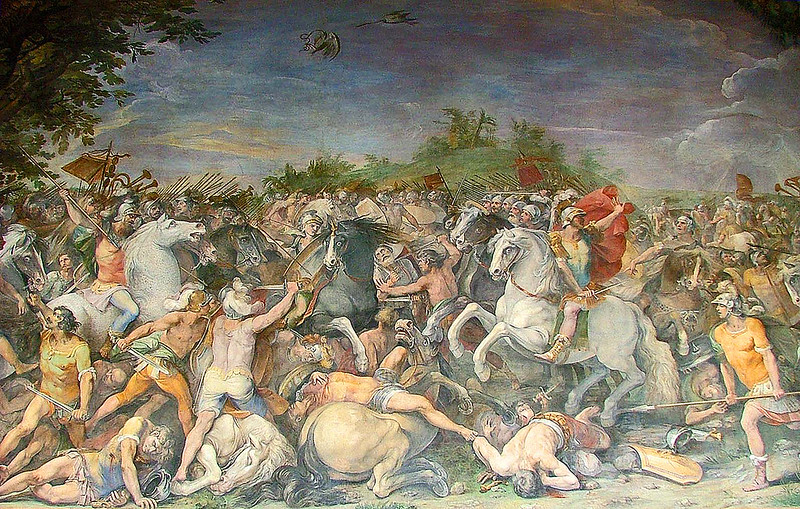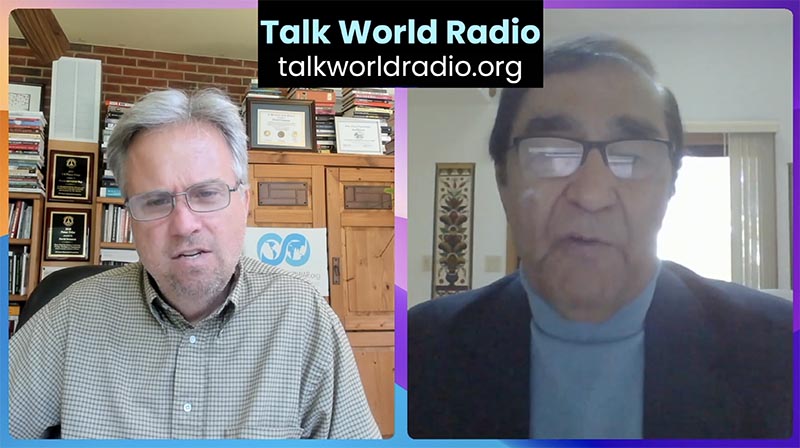The US government's greatest export in the 21st century? Death. Daniel Brown and Azmi Haroun (BUSINESS INSIDER) report:
In the 76 countries in which the US is currently fighting terrorism, at least three have been incredibly deadly: Iraq, Afghanistan and Pakistan.
And as the US pullout from Afghanistan nears the one year mark, Brown University's Costs of War Project report details just how deadly they've been. It counts how many people have been killed by the "United States' post-9/11 wars" in these three countries, along with others.
The report accounts for deaths in Afghanistan and Pakistan between October 2001 and October 2018, and in Iraq between March 2003 and September 2021.
In October 2001, the US invaded Afghanistan to defeat the al-Qaeda and the Taliban, and 20 years later, on August 30, 2021, the US completed a chaotic withdrawal of troops from Afghanistan as the Taliban regained full control of the country.
[. . .]
6,951 US military deaths.
Iraq: 4,550 deaths.
Afghanistan: 2,401 deaths.
Pakistan: 0 deaths.
There were also 21 civilian DOD deaths, including six in Afghanistan and 15 in Iraq, the Cost of War report notes.
7,820 US contractor deaths.
Iraq: 3,793 deaths.
Afghanistan: 3,937 deaths.
Pakistan: 90 deaths.
109,154 national military and police deaths.
Iraq: 41,726 deaths.
Afghanistan: 58,596 deaths.
Pakistan: 8,832 deaths.
1,464 Allied troop deaths.
Iraq: 323 deaths.
Afghanistan: 1,141 deaths.
Pakistan: 0 deaths.
244,124 — 266,427 civilians.
Iraq: 182,272 — 204,575 deaths.
Afghanistan: 38,480 deaths.
Pakistan: 23,372 deaths.
109,396 — 114,471 opposition fighters.
Iraq: 34,806 — 39,881 deaths.
Afghanistan: 42,100 deaths.
Pakistan: 32,490 deaths.
362 journalists and media workers.
Iraq: 245 deaths.
Afghanistan: 54 deaths.
Pakistan: 63 deaths.
566 humanitarian and NGO workers.
Iraq: 62 deaths.
Afghanistan: 409 deaths.
Pakistan: 95 deaths.
479,858 — 507,236 total deaths.
Iraq: 267,792 — 295,170 deaths.
Afghanistan: 147,124 deaths.
Pakistan: 64,942 deaths.
Read the full report here.
Read the original article on Business Insider
It's an undercount, to be sure, but it's the most serious attempt at a real count in over a decade.
Anyone worried about an overcount on US troops killed in Iraq and citing DoD figures, should grasp that the US government's count buries troops killed in Iraq after December 2011 under the heading "Operation Inherent Resolve" and which covers deaths in "Bahrain, Cyprus, Egypt, Israel, Jordan, Kuwait, Lebanon, Qatar, Saudi Arabia, Syria, Turkey, the United Arab Emirates, the Mediterranean Sea east of 25 [degrees] longitude, the Persian Gulf and the Red Sea."
That lumping is how they and the press get to pretend that the war ended at the end of 2011 -- when in fact, there are 74 more deaths after that.
In addition, Brown's Costs of War study notes that there have been 30,177 suicides among veterans of the post-9/11 wars.
Now let's note this from Human Rights Watch:
(Baghdad) – Kurdistan regional security forces arrested dozens of journalists, activists, and politicians on August 5 and 6, 2022 in advance of planned protests, Human Rights Watch said today.
On August 1, Shaswar Abdulwahid, leader of The New Generation opposition party called for demonstrations in Sulaymaniyah, Erbil, and Duhok in the face of worsening “corruption, poverty, and unemployment” in the region.
“Using arbitrary repression to quell protests and intimidate activists and journalists is a recipe for spreading further grievance among KRI residents,” said Adam Coogle, deputy Middle East director at Human Rights Watch. “The better way to address public anger is to ensure respect for basic rights and freedoms, including the right to peaceful protest.”
Human Rights Watch has in recent years documented increased targeting of independent media outlets and journalists in the Kurdistan Region of Iraq (KRI). Both federal and Kurdistan Region authorities have used a range of defamation and incitement legal provisions against critics, including journalists, activists, and other dissenting voices.
Rahman Gharib, director of Metro Center, which monitors media freedom in the Kurdistan Region, told Human Rights Watch that the group had identified 78 rights violations by security forces against 60 journalists and media outlets during the arrests. The security forces detained at least 26 journalists, confiscated equipment from 23, and prevented 16 from covering the protests.
“It has become clear to us that the security forces are targeting journalists during protests rather than protecting them,” Rahman said. The security forces “are afraid of camera lenses because they reveal their own illegal behavior.”
Sirwan Gharib, editor of the independent news website Westga News, said that he was detained in Sulaymaniyah on the day of the protests, August 6, for several hours, along with many of his colleagues.
“As we arrived to cover the protests, a drone belonging to the Asayish [internal security forces] filmed us from a close distance to intimidate us” as “I waved to them showing my journalist ID card so they would know that we were journalists,” Gharib said. He said he had sought to ensure safe conditions to cover the protests by calling the mayor of Sulaymaniyah, Awat Mohammed, in advance, asking him to allocate a place in Al-Saraya Square, the protest site, for journalists, but the mayor did not respond.
Asayish personnel were already in the square when they arrived, journalists and activists said. As the protest began, the Asayish fired teargas at the protesters and journalists, though witnesses said they did not see any violence that would justify the use of teargas or of arrests.
As the protest proceeded, the Asayish arrested his crew’s cameraman, Zanyar Mariwan, Gharib said. Then, as his colleagues tried to help him, the Asayish arrested the rest of the crew, Lania Bakhtiar, Arkan Abdul Qadir, Hevar Hiwa, and Gharib.
“We were all taken in a minibus to Asayish security offices, where they confiscated our mobile phones and treated us like criminals,” he said. “But covering the news is a fundamental right, not a crime. During the investigation they told me that we didn’t have permission [to cover the protests]. I told them that I am a journalist, and that when covering demonstrations, I don’t need permission.”
They were released a few hours later, without charge.
Taha Ahmed Saeed, a leader in the New Generation Movement, told Human Rights Watch that Asayish security forces arrested 86 party members, some before the protests and others as they began.
He said that on August 6, Asayish raided his home, and then his father’s home, both in Sulaymaniyah, arresting him at his father’s home without showing a warrant. They confiscated his mobile phone, and also confiscated his brother and sister’s mobile phones, searched through them, then returned them.
Security forces held Saeed in Kani Goma prison in Sulaymaniah for four days, then released him after he paid bail, but did not tell him whether any charges were pending against him.
“During the investigation, one officer asked me, ‘Why did you incite the protest?’” Saeed said. “I told him that the right to assembly is a fundamental right for political parties, for any citizen. How is it a crime?”
Rebwar Abdul Rahman, an Iraqi parliament member representing the New Generation Movement, said that he and two other Iraqi parliament members from the party, Omed Mohammed and Badrya Ibrahim, were arrested on their way to the protests.
“At 4:30 p.m., Asayish arrested the three of us just 200 meters away from the protest square,” Abdul Rahman said. “They put us in a minibus and drove us around the city for four hours, then they dropped us off on 60th Street. [The security forces] didn’t show us an arrest warrant, they just told us that they have orders to arrest us. They just didn’t want the protest to happen.” He said they were not charged.
Taif Goran, Duhok office director for the local outlet Nalia Radio and Television (NRT) News, said that security forces arrested 18 NRT staff members in Erbil, Duhok, and Sulaymaniyah.
Goran said that on August 5, as he and a reporter, Briyar Nerwayi, left their office, local police arrested them, confiscated their equipment, including a camera and two livestream boxes, and took them to the Duhok emergency police office.
Among the other staff arrested, Adil Sabry, a cameraman from the channel’s Duhok office, and Sabah Sofy, a reporter from NRT’s Shekhan office, were also taken to the Duhok emergency police office.
“The security forces didn’t provide us any legal reason for our arrest,” Goran said. “They arrested 11 activists too. So we were 15 persons in custody.” After 27 hours in detention, security forces released all 15 of them, each on a sponsored guarantee of 5 million Iraqi dinar (US$3,430) bail but did not tell them what they were charged with.
Kurdistan regional authorities often use regional laws against journalists and activists exercising basic rights like freedom of assembly, including the Press Law and the Law to Prevent the Misuse of Telecommunications Equipment. These laws prohibit, among other things, misusing cell phones and email – or more broadly the internet – to threaten someone, using profanities, spreading misinformation, sharing images counter to the public’s values, and sharing private information, even if true.
The Kurdish Law for Organizing Protests in the Kurdistan Region of Iraq requires written permission for all protests from the regional interior minister or the local administrative unit. If permission is refused, protesters can be charged with a crime.
“Kurdish authorities often tout the region’s prosperity and stability relative to other parts of Iraq,” Coogle said. “But the pre-emptive arrest of activists, opposition politicians, and journalists merely for organizing, attending, and covering peaceful political protests is nothing to be proud of.”
Human Rights Watch is pretty much the only organization that consistently notes every attack in Iraq on protesters. And there have been a ton of attacks on protesters since the 2003 US-led invasion. Here's the thing though, in all this time of protests, only one group hasn't been attacked by Iraqi forces. That would be Cult of Moqtada. They broke into the Green Zone, they broke into Parliament and not only were they not evicted, they didn't face the abuse that the other groups had. That's because an order was put in place by 'caretaker' prime minister Mustafa al-Kahhimi that not a hair on their heads should be harmed. So they were allowed to break the law and the law looked the other way. Meanwhile, the young Shi'ites of The October Revolution were attacked -- and I'm not just talking before Mustafa became prime minister. Let's just deal with after. They were beaten. They were mowed down. Their shelters were burned and run over.
All they did was occupy the public square in downtown Baghdad.
Fairness? Not in Iraq.
Moqtada is once again demanding that the Parliament dissolve itself.
The following sites updated:








